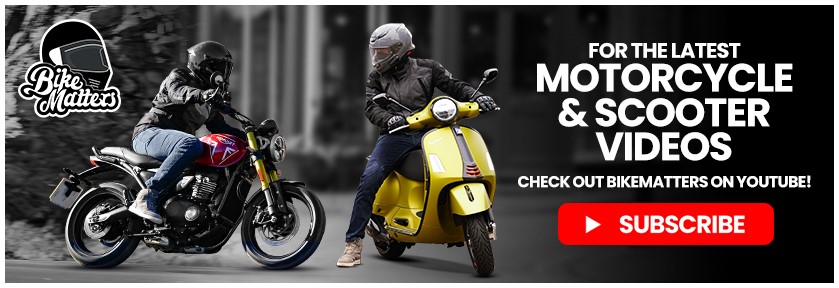Compulsory basic training (CBT) is a course that learner riders have to take before they are able to ride a motorcycle, scooter, or moped on the roads, the training typically lasts a day and costs around £150 (for more check out our Compulsory Basic Training (CBT) guide).
The rise in demand for mopeds, motorcycles, and scooters has only meant the need for CBT instructors has increased - one reason for this may be the increase in delivery riders in the UK since the first COVID lockdown.
In this article, we are going to run down all you need to know about becoming a motorcycle instructor, so let's get into it shall we?
What do motorcycle instructors do?
In order to become a motorcycle instructor, you need:
- Great knowledge and understanding of motorcycles
- Detailed knowledge of motorcycle regulations
- Excellent verbal communication skills
- Patience and understanding with your pupils
- And lastly, a good general sense of safety and responsibility
It may be tough to remember the days back when you were learning how to ride a motorcycle, but you will have to deal with all sorts of students (such as those who are nervous) which you will need to prepare yourself for…
A day in the life of a motorcycle instructor
A typical day in the life of a motorcycle instructor includes:
Checking pupils licence and carrying out eyesight tests
Make sure students have the correct licence to complete a CBT, and make sure they can read licence plates from a distance.
Teaching in the classroom
Explain the aims of the CBT course and which protective motorcycle gear learners should be wearing when riding a motorcycle. Teaching in the classroom can also include covering legal aspects of CBT such as the Highway Code, theory, and safety procedures.
On the roads
As an instructor, you will be getting out on the roads with your pupils regularly, whether that may be one by one, or as a group. When on the roads, pupils will be taught how to safely approach roundabouts, junctions, and crossroads.
If you are working in a CBT training centre:
When working in a training centre, you may also be teaching up to 10 other instructors how to teach CBT training.
How much do motorcycle instructors earn?
On average, a fully qualified instructor can earn between £24,000-£27,000 a year.
This salary can also rise to £30,000 depending on which qualifications and experience you have gained.
However, it is important to note that salaries of motorcycle instructors can vary and are very much dependent on three things:
1. The location in which you chose to work
2. Which company or organisation you work for
3. Demand for the jobs
What qualifications do CBT instructors need?
For starters, in order to become a motorcycle instructor you will need to be over the age of 21 years old, and hold either a full A licence or an A2 licence for at least three years.
You will also need a DVSA (Driving Vehicle Standards Agency) approved motorcycle instructor qualification.
Lastly, you may be required by some employers to hold a valid driver's licence as well.
What types of motorcycle instructors are there?
There are two types of motorcycle instructors that can carry out CBT training:
- Down-trained
- DVSA assessed
1) Down-trained
If you wish to become a down-trained instructor, you will need to complete a 5-day course. During this course, training will be ongoing until you reach a certain standard to pass the course.
Down-trained motorcycle instructors teach learner riders on CBT courses (both in the classroom and on the road) on motorcycles or mopeds smaller than 125cc.
2) DVSA assessed
To become a DVSA-assessed motorcycle instructor, you will need to partake in a 3-day training course and complete a 2-day assessment at the DVSA centre in Bedfordshire.
At this level, instructors continue to teach learner riders on CBT courses on both the road and in the classroom, but they will also be allowed to train other instructors on how to teach CBT themselves.
The last stop!
So there you have it, our guide on how to become a CBT motorcycle instructor. Feeling inspired?
Don't forget as well as offering scooter insurance and motorcycle insurance, we here at Lexham also offer motorcycle training school insurance too! Make sure to get a bike insurance quote online!









